Korean Etiquette & Customs
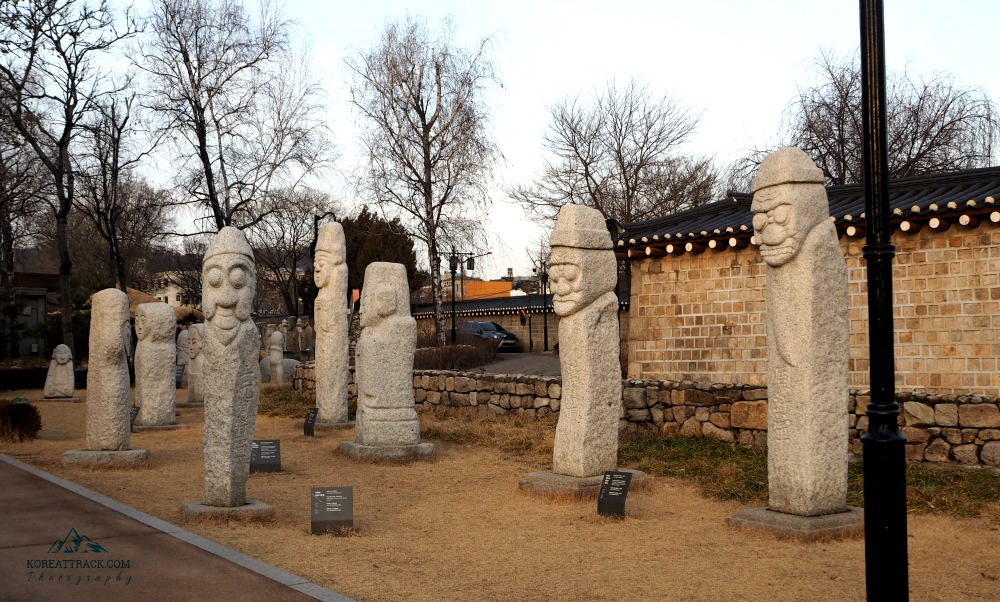 These stone statues are Korean scholars and prominent figures in Korean history [National Folk Museum of Korea, Seoul]
These stone statues are Korean scholars and prominent figures in Korean history [National Folk Museum of Korea, Seoul]Korean Etiquette
The Korean etiquette, cultural features, and conventions are fascinating to learn. It is not only how they interact, but also how the unwritten rules in the society have been structured and play their roles in their daily lives.
It is through such unwritten rules that each individual functions, and that drives the country up to its present standing at various social as well as economic advancement.
Being here for over a decade, I have observed, learned, and has even practicing myself the conventions and norms of society.
Although, as a foreigner with other cultural backgrounds, you are not expected to know or behave the way they do things. Koreans are very respectful in that manner.
Koreans are reserved and well-mannered. Korea has been influenced by the idea of social stratification. Notably, the Confucian hierarchical practice was stringently imposed in the past, especially during the Joseon Dynasty period.
Although some have been denying this influence, the hierarchical phenomenon still is affecting people in some ways or another.
That hierarchical mindset is being handed down even to the present. Indeed, things have changed--many Koreans have been abroad and learned other cultures and ways of interacting.
But please let me tell you here that nothing is absolute in this world. Not even cultural traits.
Therefore, I am going to describe here are the basic norms of Korean etiquette and behaving, just like other countries have their cultural peculiarities and practices.
It means that although a particular etiquette is supposed to be acted, however, not all people in a specific culture do what others do due to personal differences within that same culture.
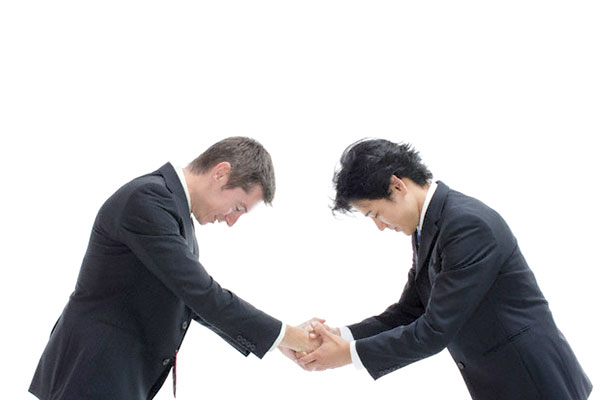
Learning Korean Etiquette
The Korean society has particular customs and guidelines of etiquette established since long ago. Some of these etiquettes and guidelines also subsist in other countries and cultures.
As I mentioned above, Koreans are very understanding when their visitors make 'mistakes.' However, it is far better and beneficial for you, especially if you are a foreigner, to be better informed and make good impressions to your host.
Not only will you show respect to the group or individual person, but you'll likewise be welcomed and offered the best treatment and service you can get in this culture.
Ideally, you learn the language, even simple greetings, and expressions. It would be very much appreciated. But you are not expected to learn in a few days because learning it takes time.
Learning the language is an investment, but it could be expensive if you decide to learn it formally at a 'hagwon' or language institution.
If you are new to Korean culture, especially on etiquettes, let me describe some of the basic ones that you might have to observe when meeting the locals...
Local Etiquette & Customs
Here, below, let me express more specifically how one should behave if one has to follow the etiquette strictly or the expected behavior. I will describe each practice based on a person's status, age, position, and role in the family.
Meeting Someone First Time
First, when you are meeting somebody, in general, for the first time, either young or old, you should typically bow to each other as a sign of respect. You can't go wrong with that.
If Older: You should more respectfully bow (lower) to the person you are meeting. Wait if he/she shakes your hand. You don't offer to shake his/her hand first. If he/she offers, you should use both hands when you respond.
If younger: You can offer to shake his/her hand with one hand, especially with your right hand. You can bow to him/her quickly but not deeply because it will be awkward to him/her.
*Lefthand shaking is not culturally acceptable.
Between Friends/Same Age: You can simply shake hands casually or say 'annyong' without any honorific form involved in the greeting. If you really become close friends, you may also hug (*not advisable if COVID-19 is still around!).
Greetings
If Older: You should greet first by saying the higher form of respect: Annyonghashimnikka? to the older person you are meeting with. The ending or suffix 'nikka' is the highest form of respect you can give to anybody, especially to the older people.
*Annyeong means 'peace be with you' in the English language.
Dining with Koreans
When dining with Koreans, you are also expected to apply the conventions of etiquette. Again, you are excused if you don't know anything about dining etiquette in this culture.
Here we go...
Who Eats First
It is the oldest person in the family, the official, your boss, or the invitee who picks first the cutlery and starts eating. You should observe that as a basic form of respect for the elders.
If you are older than your invitee or host? You can negotiate and say to the host that he/she should start first. If he/she tries to insist that you do, try to insist the same. Or you can suggest that you should start 'digging' together at the same time!
If with friends or younger: You can both start eating together at the same time. Whew!
When Talking
If Older: It is the older people who should lead the conversation. Younger people or children are supposed to listen very carefully and do not intervene while he/she is talking.
Although it is outdated, you only talk to older people when you are asked to respond or say something on any issue. Listening carefully and responding 'yes' (accompanied by nods) to any advice given is highly appreciated and an expected form of respect.
You are not supposed to look straight into the eyes of the elders while they are talking or giving advice. Instead, you should bend your head a bit to avoid looking straight and look down while listening intently.
It is also the elders who speak louder. Although it is not always the case, you are expected to respond positively and appreciate the speech.
However, it is a bit different when you are freely talking while eating in a restaurant or other very informal and relaxed setting.
When Invited to Dinner
As you are the guest, expect that the host (in the house or restaurant) will serve you well. They will take your plate (not always) and put food into it.
Accept it gladly and say they look delicious. And expect that your host will offer more food and you are supposed not to decline their offers. Again accept gladly and say the nice magic word 'delicious' and 'I have eaten well.'
But you should also be discreet when consuming your food quickly as the host might think you are still hungry and need more, although you only want to express that you love the food. They might give you more when you are already full!
When Drinking/Pouring Drinks
Who Pours First?
It is the oldest (or official) who would pour the first drink, then he gets the next drink as the receiver of the first drink is 'obligated' to pour back.
When you receive your drink, don't drink ahead. Wait for a toast, and you will all say together 'cheers' ("geombae") and do 'one-shot' if it is a soju drink.
Never pour your own drink (I know that sometimes it happens). But you are expected to pour a drink to others. Just wait for others to notice that you ran out of beverages. You should watch out for the drinks of the elders who are expecting you to pour their drinks.
Although I can support pouring drinks to the elders who are taking care of the younger ones, I don't support the idea that women are expected to pour drinks to men, as it is still happening somewhere in the society. [I am for social equality and transformation]!
Know this one!
When you want to offer a drink to somebody in the group, you can offer your own glass (or small soju glass) and pour it with a drink. This form of offering is very intimate and expresses a special message to the one you are offering.
That special attention and message are conveyed when you offer your own glass and not merely pour the person's drink.
However, nowadays, that special attention has changed and only happens on special occasions or certain relationships of the people involved.
And this one...
If one offers to pour your glass, you should drink up first before receiving the offer. Your glass should be empty before getting the next drink. That's an etiquette when drinking
Between Friends/Same Age
Not a problem at all. If you want to impress your friend (or request a favor), you can pour for your friend first.
Formal Sitting Position
When you are sitting during dinner, and in front of the elders, you are expected to sit upright with both legs bent and not stretched out under the table.
Both your hands should be folded in front of you while talking with adults or elders to show respect. A leaning position on one side is seen as informal and could be disrespectful to the elders (or in any official or formal sittings). It could be interpreted as disinterest or no focus!
Entering the House
It is a custom and proper etiquette to remove your slippers or shoes when entering the or somebody's house. It is not only formal but also a matter of sanitation.
Your shoes could be attached or infected with unsanitary materials when you explored outside the house parameter.
You can find the shoe racks located right after the main door of the house. You can find the slippers in the same shoe racks.
It is also a custom and etiquette to wear socks (and house slippers) while inside the house. Korean house's floors are cleaned every day as they usually sit on the floor (with soft paddings when sitting by the tables).
When Inside the Public Transports
Older people are expected to be given the seats first.
If you are seated, and an older person came in, it is an etiquette to offer your seat, especially when there is no other vacant seat on the bus or subway.
Of course, there are designated seats for the elderly, pregnant women, and disabled people. However, if you see that an elderly is standing, you ought to give up your place. You will be complimented highly!
This is not absolute, just like the etiquettes, as mentioned earlier, and formalities as others would not even bother.
When Receiving/Giving Things
Receive with both hands, especially from your boss, elderly, or anybody you meet for the first time to show great respect.
Between Friends: You can casually receive either with both hands or one hand, preferably the right hand.
The same thing goes to the elderly when giving or offering items. You should use both hands to show respect and a slight bowing gesture.
Just like in other cultures, you should wrap your gift, at least, presentable and respectful enough to the receiver.
When giving cash gifts, put it inside an envelope. Also, if you want to give a waiter or server some cash for their service, put your money inside an envelope or piece of paper and hand it silently instead of leaving it on the table as you do in other cultures.
First Meeting
Typically and traditionally, older people would ask you personal questions, especially those related to job, marriage, education, and age. Yes, age would be the first question.
They might also ask your parent's situation, like their occupation and health conditions.
Culturally, such questions are intended to show concern and interest to the other person. Not asking those questions simply mean you are not interested to know or relate to the other person.
I know that such questions are a 'no-no' or 'non-of-your-business' questions in Western culture. Since most Koreans know that cultural differences, they are more careful and prudent when asking questions to non-Koreans.
However, if you wish to intermingle with the local culture more deeply, learn how to accept and answer such 'personal' or private questions. Taking it not as a kind of interrogation but a show of concern and interest could be a liberating feeling.
Business or Official Meeting
Usually, if you will be meeting a new person, you will be introduced by somebody instead of yourself directly.
If you bow (if a foreigner), the other person will also do the same. It may not happen if they recognize you are a foreigner and not showing any Korean cultural expressions, expect a handshake instead.
Handshaking is now recognized as an official friendly expression when meeting people instead of the traditional bowing greeting.
Then you are supposed to exchange business cards. It is respectful and etiquette to offer a business card.
Your business card tells you who you are. Sometimes your title and status are more important and respected if you have the business card.
Business cards confirm your identity and status or job position. After receiving the business card, be sure to read it thoroughly and not put it right away into your pocket or wallet.
Again, when giving out your business card, you should use your right hand while being supported by your left side during the giving.
On the safe side, use your both hands when giving out your card--with the card prints readable to your receiver's position. You can do this more explicitly when giving your card to the higher-ranking official and older officers.
You can relax such conventions when you think that you are dealing with people who have similar ranks and age as you are.
Who Leaves First
When accomplishing things, the elders are supposed to leave ahead than the younger ones. Although not an absolute etiquette requirement, this applies to situations including after dining, after work, after a meeting, among others.
In the office, other staff members are expected to leave only after the managers and executives have left the area.
After a meal or dinner, you should wait until the older person or executive has left or stood up first. It is disrespectful for a younger person to go ahead without any critical reason for acting so.
Those are the essential Korean etiquette that you might need to be aware of. As I already reminded you above, nothing is absolute here. But don't make a mistake in not observing the basic ones because they are necessary.
Missing to observe some etiquettes could affect your experience, business, travel, and learning about local cultures.
I hope they are helpful. Please, let me know should you have additions or comments. You may write them below or drop me an email.
Enjoy your cultural exchange.
Get Exciting Activities
Book one of our exciting activities today to experience the thrill of a lifetime! Take advantage of this opportunity and secure your spot in advance.
Hotel Map Guide
Find your affordable, accessible, and comfortable hotel in Seoul at Agoda.Com. See the hotel map below...
Hotel Booking Guide
Find affordable and amazing hotels on Agoda.com using the search box below. Book now to enjoy great discounts and save!
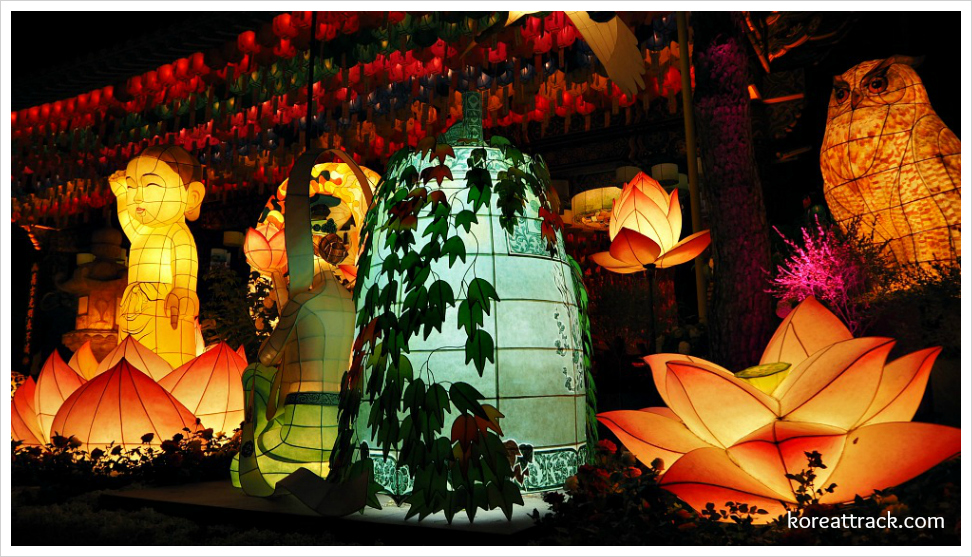
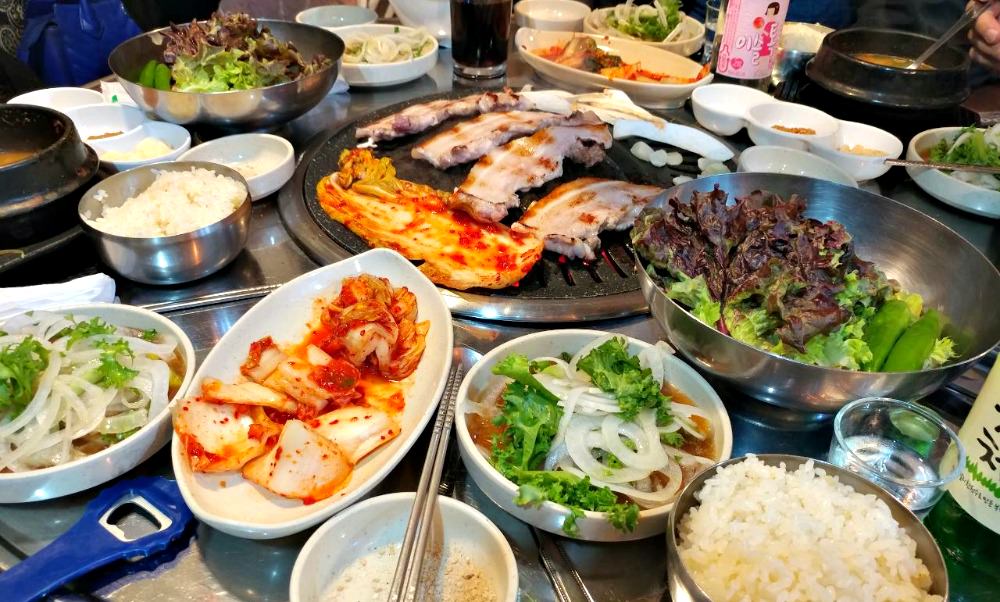
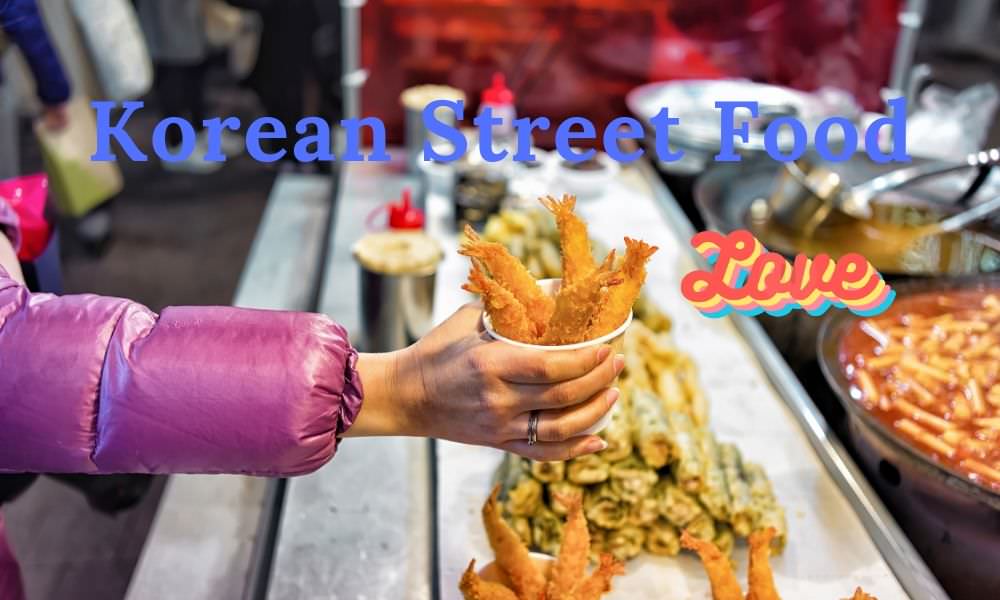




New! Comments
What do you think about this page? Leave me a comment in the box below.